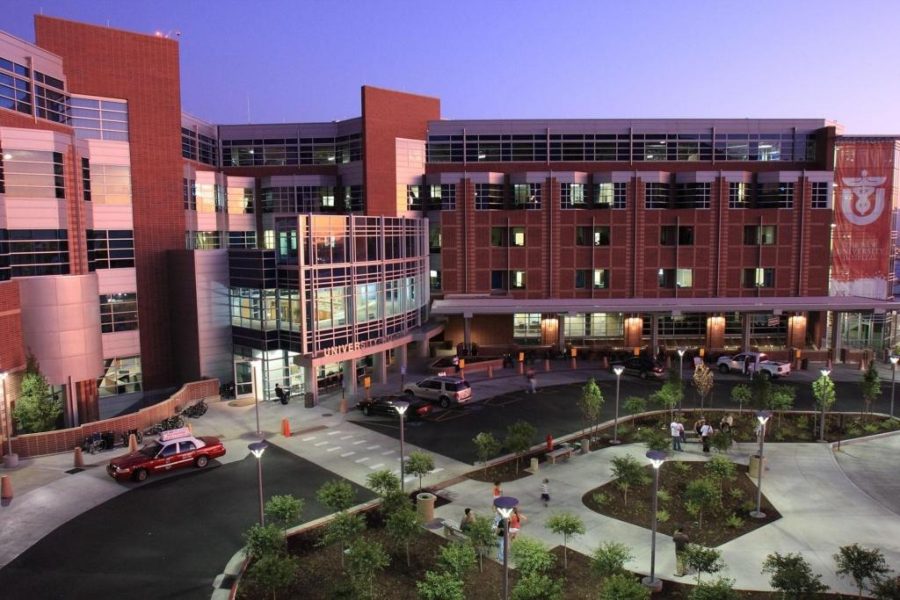Patrick Soon-Shiong was hailed as a patron of scientific discovery when he visited the University of Utah in the fall of 2014 after donating $12 million to research on campus.
But now, almost three years later, his fame on campus has shifted. Earlier this year, the state launched an audit of the U after Politico and STAT News released investigative pieces on how Soon-Shiong’s philanthropy is cyclic, often financially benefiting his own companies, and this past Tuesday the findings of the audit were released. The auditors found the U’s current partnership with NantHealth, one of Soon-Shiong’s constituent companies, was secured in violation of state procurement codes as university faculty did not seek competitive bids before giving NantHealth a $10 million contract to sequence 1,372 genome samples genetic for the Heritage 1K (H1K) project. This research was made possible by Soon-Shiong’s original $12 million donation.
University Rule 3-100B reads, “procurement of items in excess of the formal purchase threshold, $50,000, will be awarded only after solicitation of sealed competitive bids or proposals.” The only exception to this rule is if the use of that specific service provider is “a condition of a donation that will fund the full cost of the … service,” much like a donation in-kind. However, the university was required to seek bids from at least three separate companies before contracting a lab as $10 million is well above this threshold and the HK1 donation contract did not specifically stipulate what lab would be awarded the contract. This process is required by the state to ensure the university receives competitive estimates from potential partners and to protect the institution from claims of misconduct. Sadly, by ignoring this rule, university researchers paid NantHealth $7,289 per genome sample, exceeding sequencing costs at other labs, and opened the university to controversy.
Why did U researchers skip this vital step of the process? Incompetence seems a more likely answer than out-and-out corruption. Vivian Lee, the former university Health CEO and senior vice president of Health Sciences, was tasked with negotiating the donation contract and then partnership contract between Soon-Shiong and the U. She and U lawyers gave Soon-Shiong unprecedented power during the drafting of both contracts, allowing him to tailor the donation contract to benefit his labs and allowing him to set a price for genome sequencing without recourse. While she defended the power given to Soon-Shiong by telling auditors he knew more about this type of work than the university did, as the lead negotiator for the university it was her responsibility to guarantee the U benefitted from both the donation and the partnership. If Lee had questioned specific verbiage in the donation contract, then the U would have had increased freedom in selecting a lab. If Lee had reached out to other sequencing labs to get comparable bids, then the university would have had the authority to question Soon-Shiong’s inflated sequencing costs. By not effectively advocating for the U, Lee agreed to contracts which benefited Soon-Shiong more than the institution. The audit also discovered many researchers at the U misunderstood the stipulations of state law and university regulations as most researchers do not seek a formal bid before contracting a sequencing lab. Instead, they base selection off an informal evaluation of price, quality, and availability.
The audit conducted by the state reads, “While the scope of this audit did not include any analysis of the donor’s motivation or results for his business, we would note that by following procurement requirements and code, the university could have avoided being drawn into public scrutiny.” Perhaps it was Soon-Shiong’s intention to launder money as many of his critics believe, but what is important for our campus are the steps the university could have taken to avoid the situation entirely. U spokeswoman Kathy Wilets has pledged to to implement the audit’s recommendation, educating faculty on state and university regulations. And despite the controversy, auditors acknowledged Soon-Shiong’s donation to the HK1 project ‘undoubtedly led to valuable scientific progress’ which ‘could lead to great improvements in… the human condition.’ As any researcher knows, this is high praise.




Just Saying • Oct 27, 2017 at 5:16 pm
Then is used to describe sequential events
Than is used as a comparison.
We went to the hospital, then the grocery store.
“telling auditors he knew more about this type of work THAN the university did”
Just saying.
Megan Hulse • Oct 30, 2017 at 3:13 pm
Thanks for catching our mistake! Sometimes things slip through editing- it has now been updated.